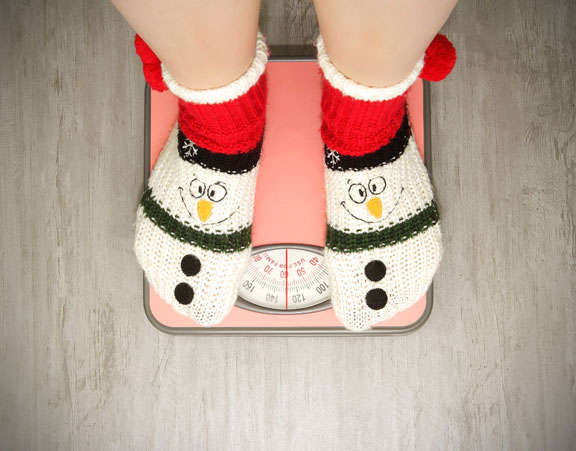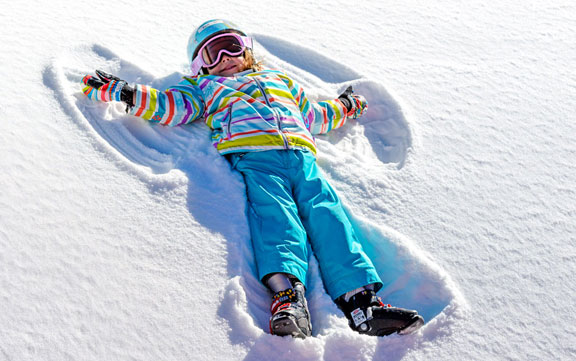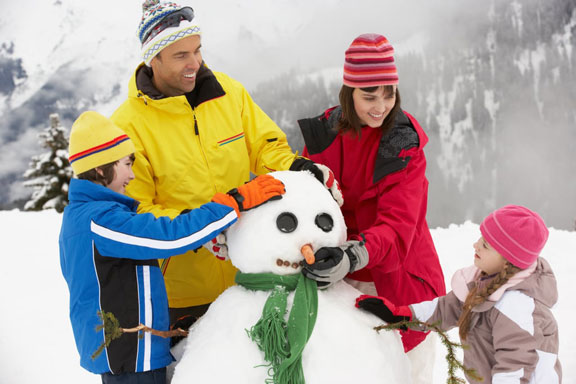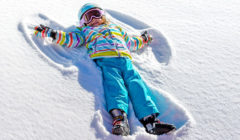The Skinny on Holiday Weight Gain
Twas the night before Christmas, when all through the house, not a creature was stirring, not even a mouse. The stockings were hung by the chimney with care, and wait, is that a scale? Yep, it’s another year and another holiday season is upon us.
Ahh, the holiday season. A time for friends, family, fun and a whole lot of feasting. Did you know that the average American consumes 4,500 calories and 230 grams of fat on just Thanksgiving Day alone? While the seemingly endless meal of turkey, potatoes and stuffing is anticipated by so many, the holiday season can be a real nightmare for someone who is trying to control their weight.
The holiday season doesn’t represent one day of overeating. You have this period that begins at Thanksgiving and extends through the New Year. Since the average weight gain during adulthood is about one to two pounds a year, it’s safe to say that much of our midlife weight gain can be explained by holiday eating. The bad news is, most of us don’t ever lose the pound of weight we put on during the holidays.
For people who are already overweight, the holiday weight news is worse. Although the average gain is only one to two pounds, people who are already overweight tend to gain a lot more. One study found that overweight people gained five pounds or more during the holidays.
We all know that one of the best ways to lose weight is to eat less and move more. Accomplishing both of these tasks at the same time can be an uphill battle for most of us this time of year. Here are a few tips on how to keep your weight and your sanity in check this holiday season:
- Bring a healthy dish to share. Holiday parties can be a common setback in the battle against holiday weight gain. In these instances, you often have little or no control over the food that’s served. The good news is, you can have control over what you eat. Simply bring your own healthy dish for yourself and to share with others.
- Get plenty of Zzzs. Sleep deprivation is quite common during the holidays, and it can help contribute to weight gain. This is because those who do not sleep enough tend to be hungrier, consume more calories and get less physical activity.
- Keep meals balanced with protein. Holiday meals are typically rich in carbs and lack protein. Include some protein with every meal, as it promotes fullness, helps controls cravings and is useful for maintaining your weight.
- Don’t skip meals. Eat your normal meals at their regular scheduled times. You will be less likely to overeat if you keep yourself satisfied throughout the day.
- Go easy on dips, chips, sauces and desserts. These food items can be deceptively high in calories and fat. Instead, concentrate on fresh fruits, veggies and lean meats.
- Go easy on the alcohol. Sorry guys, but alcohol can increase your appetite and lower your resolve to resist overeating. In addition, many holiday drinks have as many or more calories than a dessert.
- Move! Here’s a fact for you. Thinking about going to the gym burns between zero and zero calories. Even if you only have the time to fit in twenty minutes a day, it’s better than doing nothing at all. Take a walk or hit the gym after your holiday meal. Park at the opposite end of the mall. Use the stairs instead of the escalator.

- Be active with family and friends. Sedentary activities, such as sitting on the couch and watching sports, are common holiday traditions for many families. When this is accompanied by eating excessive amounts of foods it’s a recipe for disaster. Get out and do seasonal activities the whole family can enjoy. Go sledding with the kids, build a snowman, ski, or have a snowball fight.
- Learn to manage stress. Stress associated with the holidays can be a huge trigger for people with have little or no self-control. Make sure you carve out some time for an activity that helps you relax each day. Read a magazine, take a warm bath, or walk the mall with a friend.
- Just say NO. Say no to the doggie bag. Taking home table scraps will only encourage late night snacking. Save the leftovers for someone else.
- Slow down. It takes your body about twenty minutes to realize that you are full, and you can eat a lot of extra food in those few minutes. The slower you eat the less food you’ll consume.
- Stay conscious. Be aware of what you’re eating. It’s easy to get carried away when you are in the company of friends and family. If you’re not really hungry, don’t eat.
Measure Your Waist
Get a measuring tape, wrap it around your waist, and check your girth. Do it while you’re standing up, and make sure the tape measure is level. For optimal health, your waist size should be:
- Less than 35 inches for a woman
- Less than 40 inches for a man
If your waist is bigger than these measurements you are at a greater risk of developing high cholesterol, heart disease, diabetes, and other health related disorders.
In Conclusion:
Our sedentary lifestyles and poor convenient diets are the real culprits of our holiday battle against weight gain. If we as a nation want to improve our health and extend our lives, we must make healthy food choices, eat less, and exercise regularly. Above all, we must take personal responsibility for our own health!
This doesn’t mean you can’t celebrate special occasions or indulge in your favorite treats. There’s nothing wrong with the holiday itself. The key is to keep your eating to the holiday, not to the holiday season. Remember, it’s your day-to-day habits that will have the biggest impact on your weight loss efforts. So, stay active, have fun and enjoy the holidays. Good luck to you!










